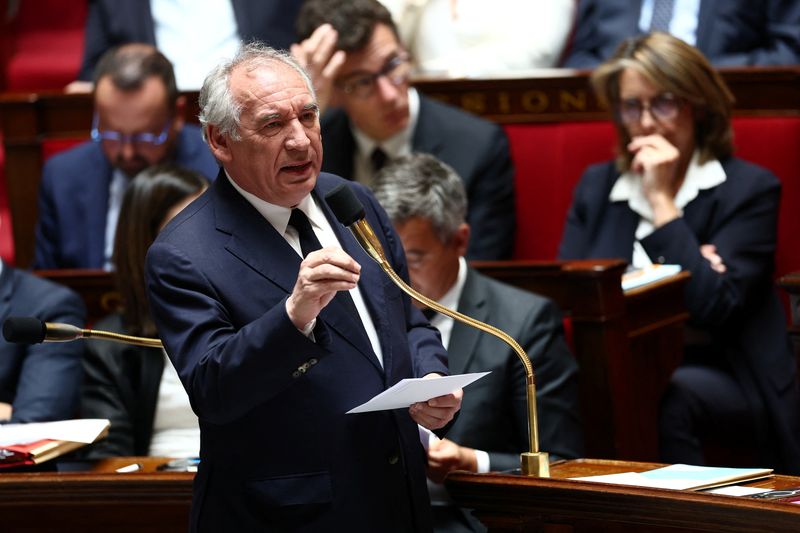Joby Aviation closes $591 million stock offering with full underwriter option
Investing.com - The collapse of French Prime Minister Francois Bayrou’s government following a failed confidence vote increases the risk of short-term volatility in the country’s financial markets, according to analysts at UBS.
In a note to clients in the wake of Monday’s parliamentary vote, the bank also flagged the potential for a downgrade of France’s sovereign debt by ratings agencies. However, they argued that this possibility has already been priced into bond spreads, adding that "French political uncertainty is no longer a surprise."
"The structural drivers behind this, from high social spending and generous pensions to high health care outlays, have long been understood by investors," the UBS analysts wrote.
"Periods of political turmoil in France have historically produced only temporary market moves, and we anticipate the same this time [.]"
Lawmakers backed the ousting of Bayrou and his minority government, who had put forward unpopular plans to tackle France’s fiscal issues, including a ballooning national debt pile equivalent to 114% of gross domestic product and a deficit that stands at almost double the European Union’s 3% ceiling.
Despite calls to dissolve parliament and resign, French President Emmanuel Macron has said he will now look for a replacement for Bayrou. It would be Macron’s fifth prime minister in less than two years.
Bayrou’s successor will likely face similar challenges -- namely, addressing France’s financial position through a budget that is palatable to a very divided parliament.
Speaking to lawmakers after the vote, Bayrou warned that "[r]eality will remain relentless: expenses will continue to rise, and the burden of debt, already unbearable, will grow heavier and more costly."
Bayrou, who is stepping down as prime minister after just nine months in the role, called the confidence vote in August, hoping to win support for his proposal to tame France’s finances through planned savings of 44 billion euros in next year’s budget. Opposition parties, however, showed little appetite for the measures.
"[W]e anticipate less painful fiscal consolidation" following the vote, the UBS analysts said, predicting that fiscal tightening for 2026 will likely be less than what Bayrou had proposed. They expect France’s deficit to narrow "more modestly" to 5% next year, and think the European Commission -- the executive arm of the EU -- is "likely to accept a more gradual fiscal tightening path after that."
They advised that investors avoid holding long-dated French government bonds given "continued upward pressure on yields," but highlighted potential value in shorter-term debt. Regarding corporate bonds, French multinations are also preferable to domestic banks, the analysts said.
